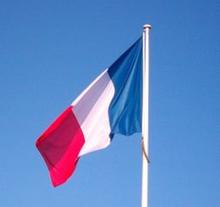 Ukraine president Volodymyr Zelensky has signed a bill that provides subsidies for renting premises for bookstores; introduces book certificates for 18-year-olds and young parents; and promotes Ukrainian books, UNN reported.
Ukraine president Volodymyr Zelensky has signed a bill that provides subsidies for renting premises for bookstores; introduces book certificates for 18-year-olds and young parents; and promotes Ukrainian books, UNN reported.
MP Yevhenia Kravchuk, one of the initiators of Bill #11251, said, "From now on, it will be possible to submit duly certified copies of the documents required for the subsidy. There are also clear deadlines for reviewing applications--10 days, and five days for publishing the results. We will not only support the publishing industry, but also popularize Ukrainian books."
Beginning this year, 18-year-old Ukrainians will receive book certificates worth UAH 908 (about $22.45), and with the end of martial law, one of the parents will also receive them at the birth of a child.
She added that there is a demand for these services. In particular, the share of people who read every day increased from 8% to 17% between 2020 and 2023. The popularity of books in the Ukrainian language has also increased from 32% to 54%.
---
 French independent booksellers are facing a bleak year ahead, according to new study presented at the French Booksellers Association biennial conference in Strasbourg that revealed profitability will drop for medium- and small-sized booksellers over the next 12 months, the Bookseller reported.
French independent booksellers are facing a bleak year ahead, according to new study presented at the French Booksellers Association biennial conference in Strasbourg that revealed profitability will drop for medium- and small-sized booksellers over the next 12 months, the Bookseller reported.
The study predicted that profitability for large outlets should remain stable at 1.7% in 2025, but drop from 1.6% to 0.8% for the medium-sized and that small ones will have a loss of 1.3%.
To offset rising costs, booksellers must increase sales by between 5.3% and 8.2% in 2024-2025, but "this appears extremely unlikely to happen because of stagnating readership and a loss of buying power," SLF v-p Amanda Spiegel said, adding that if nothing is done, most indies will be in the red within two years.
"The urgency of the situation prompts us to launch a new call (for action) to publishers and the government," SLF president Anne Martelle told the conference delegates during her opening speech calling for a minimum discount to small booksellers of 36% for all. Despite the problems, bookselling has "without doubt never been as attractive" as it is now, Martelle noted.
The study did offer some good news regarding the failure rate for booksellers. Last year, bookshops with at least one employee going into liquidation or receivership came to only 1.1% of the total, compared to 2% to 2.5% for other retailing sectors.
Spiegel told the Bookseller that the SLF has two demands for the future government: to maintain the Culture Pass for young people, which last year represented 2.6% of bookshops' sales, and to reduce the discount on book sales to libraries from 9% to 5%. This is the same as allowed to individuals under the 1981 fixed-price law. It would cost local authorities €6 million (about $6.4 million) a year, but would add 1% to booksellers' margins.
---
 The vast majority (86%) of Dutch people occasionally read a book, according to a recent a quarterly survey carried out by GfK, a market research company. The European & International Booksellers Federation's Newsflash reported that the study also found 37% of respondents read three times a week or more, compared to 32% last year.
The vast majority (86%) of Dutch people occasionally read a book, according to a recent a quarterly survey carried out by GfK, a market research company. The European & International Booksellers Federation's Newsflash reported that the study also found 37% of respondents read three times a week or more, compared to 32% last year.
The most popular places to buy a book are the Bol.com website, followed by local bricks-and-mortar bookshops. Survey respondents value local physical bookshops due to their pleasant, inspiring environment, and they also like to support local businesses. More than 50% of respondents think it is important that there is a bookshop in their area. --Robert Gray

